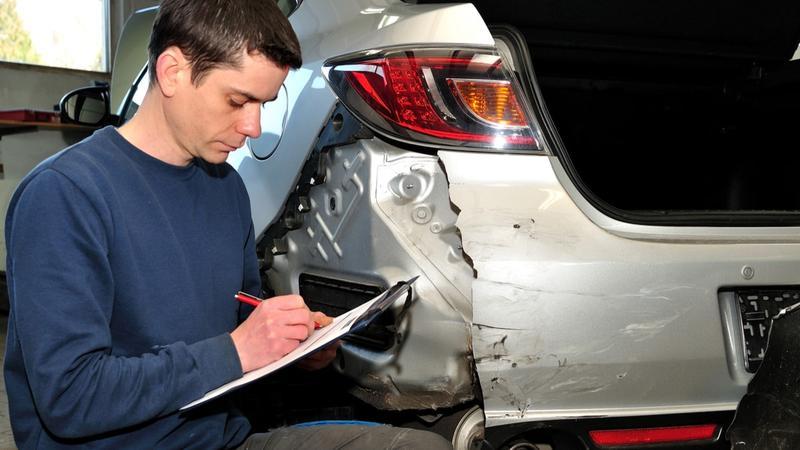Drivers could fall victim to insurance fraud scams like a staged car accident or an exaggerated claim, and these crimes are worrying Ontarians.
A recent survey conducted by InsuranceHotline.com found that nearly 53% of respondents believe auto insurance fraud is a serious problem in Ontario and an additional 24% believe it’s somewhat of a problem.
It seems their concerns are well-founded – more than one in 10 respondents reported having fallen victim to auto fraud, such as a staged accident, tow truck scam or inflated mechanic bill. Just less than one in five respondents (17.5%) said that they personally knew someone who has experienced auto fraud.
Whether you have been directly impacted by auto fraud or not, the first step towards lowering these trends is by being able to identify the tactics used by fraudsters.
Related: Auto insurance fraud: Was that auto accident really an accident?
In this article:
Have you been an unknowing victim?
While 89% of respondents claim to have never been the victim of auto insurance fraud, the reality may not match up with perception. Alex Gemmiti, a service team lead at Mitch Insurance Brokers, says that while most Ontarians claim not to have fallen for insurance fraud, perhaps they haven’t been aware and don’t know how to identify some of the fraudulent schemes.
Because filing a claim involves multiple parties – like the claimant, the other driver, repair shops and insurance providers – there's a lot that could be hidden in the claims process.
“Where most consumers might find themselves unknowingly a victim is probably at car repair body shops ... because the money goes from the insurance company to the body shop,” said Gemmiti.
He explained that it’s “very easy” for body shops to inflate their estimates to include damages that aren't present on a car and make more money off that.
“Knowing that the funds are coming from an insurance company with very deep pockets, it’s really easy for them to add things on,” he added.
However, it’s difficult to know how often it happens due largely to fraud being an under-reported issue, FSRA said in an e-mail sent to InsuranceHotline.com.
Learn more: How fraud affects auto insurance rates for everyone
Drivers are already paying the price of auto fraud
In a recent poll commissioned by the Financial Services Regulatory Authority of Ontario (FSRA) nearly 75% of respondents with auto insurance believe that auto insurance fraud is widespread in Ontario—echoing the same concerns shown by the respondents in the IH’s survey.
The FSRA poll also found more than 40% of respondents are worried they could become a victim of auto insurance fraud.
According to Tim Dzowy, FSRA executive vice president of auto/insurance products, drivers in Canada are already paying the heavy price of auto fraud — whether they’ve been directly impacted or not.
In a statement, he says, "Not only does auto insurance fraud cost victims directly, but it can also raise premiums across the province."
The Insurance Bureau of Canada (IBC) has found that insurance fraud scams cost Canadians more than $1 billion a year in added insurance premiums, and strains an already burdened health care, emergency services and court systems.
When it comes down to it, Gemmiti says everybody who pays for auto insurance in Ontario is a victim of fraud.
“We are all in some way paying or subsidizing or making up the cost of those fraudulent claims,” said Gemmiti.
What are common insurance fraud scams?
FSRA's poll revealed that 56% of all respondents don't know enough to protect themselves from auto insurance fraud. For drivers, some of the hardest scams to identify are:
- Fake pink slips (51%)
- Insurance agent scams (51%)
- Staged auto collisions (43%)
- Inflated repair costs (40%)
There are many ways fraudsters use to manipulate the insurance system, but educated consumers can still be able to successfully identify, report and prevent these crimes. Here’s how:
Fake pink slip
The slip is more formally known as your insurance card or proof of insurance. It contains critical information about your vehicle and your policy, including policy expiry dates and numbers. However, criminals commonly produce and sell fraudulent insurance cards, which, while they may look real, have false policy numbers and/or expiry dates.
FSRA recommends that you choose an insurance agent or company that is licensed, to never purchase auto insurance with cash or money transfer and to call the company listed on the policy to make sure it’s real.
Insurance agent scams
A fraudster may pretend to be an insurance agent or broker — and, in some cases, a licensed insurance agent or broker may become part of the fraudulent scheme — and try to siphon more money from you by increasing your premiums for a higher commission or simply stealing your premiums entirely.
That’s why the first step to avoiding fraud is to choose a credible insurance agent or company. Make sure they’re licensed with FSRA, and don’t be afraid to ask questions to make sure the product is the right fit. If you ever encounter requests for cash-only transactions, strange email addresses or inconsistent documents, report the insurer to FSRA.
Staged auto collisions
A person or a group may intentionally provoke an accident, like breaking suddenly on the road or otherwise try to get you to rear-end their car. The fraudster may work with body repair shops, healthcare providers, lawyers or other vendors who are participating in the scheme for money.
In some cases, tow truck drivers, often called “chasers,’ receive referral fees from vehicle repair shops to tow damaged vehicles to a specific shop.
These fees get added to your bill, and if you switch repair shops after towing, you might still owe the original shop for towing, storage, and administrative costs. Be aware that your insurer may not cover these fees, and refusal to pay could lead to the shop selling your vehicle under the Repair and Storage Liens Act.
One red flag is being referred to a specific shop at the accident site. If anyone pressures you or offers you money to go to a particular lawyer, body repair shop, or healthcare provider, note it down and report it to your insurance claim adjuster.
Unfortunately, to avoid being goaded into rear-ending another car in the first place, all you can do is drive defensively.
If you do end up in an accident, record as much information as you can, understand everything the tow truck driver or the offending car asks you to sign, verify if the tow truck and recommended shop is affiliated with a reputable company and take photos of the accident scene.
Inflated repair costs
A car repair shop may inflate the price of repair costs by adding work that was not a part of the accident damages or billing the insurance company for work that was not actually completed or completed improperly.
Gemmiti says that while people can take their car to be repaired wherever they like, it’s better to choose a body repair shop preferred by major insurance companies that can guarantee a scam-free experience.
“All your major insurance markets have a network of body shops and rental car companies that are vetted and audited regularly so (you don’t have to worry),” said Gemmiti.
But he recommends that people stay vigilant regardless. Amidst inflation and rising mortgage rates, Gemmiti says people start to become more cash sensitive and it becomes easier or more enticing to fraudsters.
Lack of awareness about the evolving problem of auto insurance fraud continues to cost the insurance industry millions of dollars, which gets passed down to all customers. While there are certain forms of fraud that drivers have no control over, being able to spot and avoid the types of fraud they can control will go a long way towards keeping your money – and peace of mind – safe from criminals.
Read next: How honest are Canadians when it comes to insurance fraud?
Methodology:
*Survey conducted by InsuranceHotline.com, polling 761 Ontario drivers between February 16 and 19 who used InsuranceHotline.com’s auto quoter.

